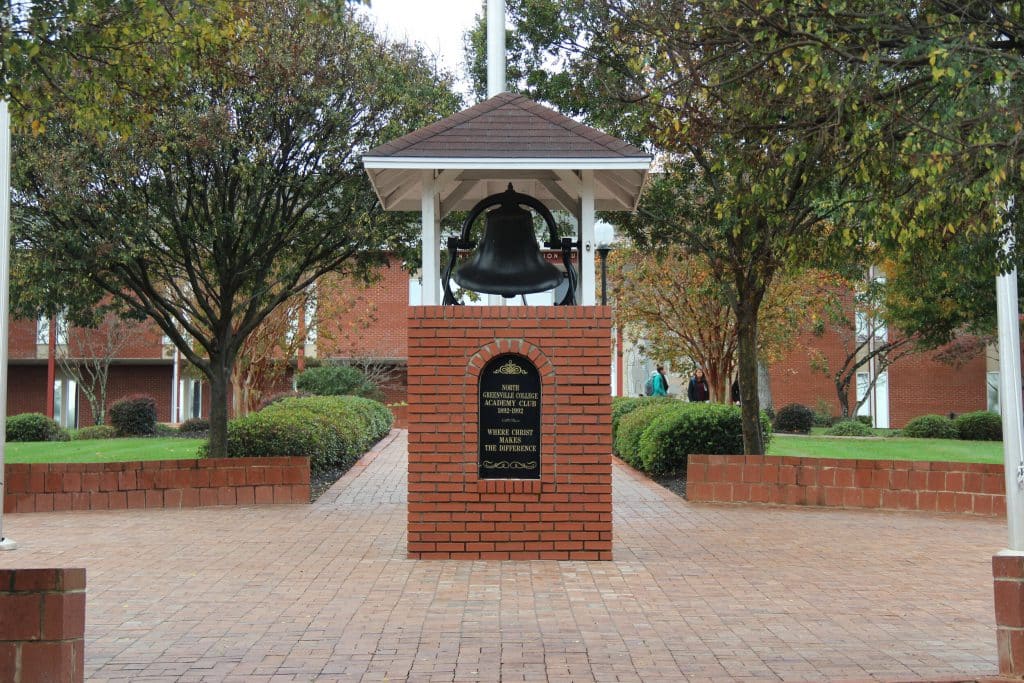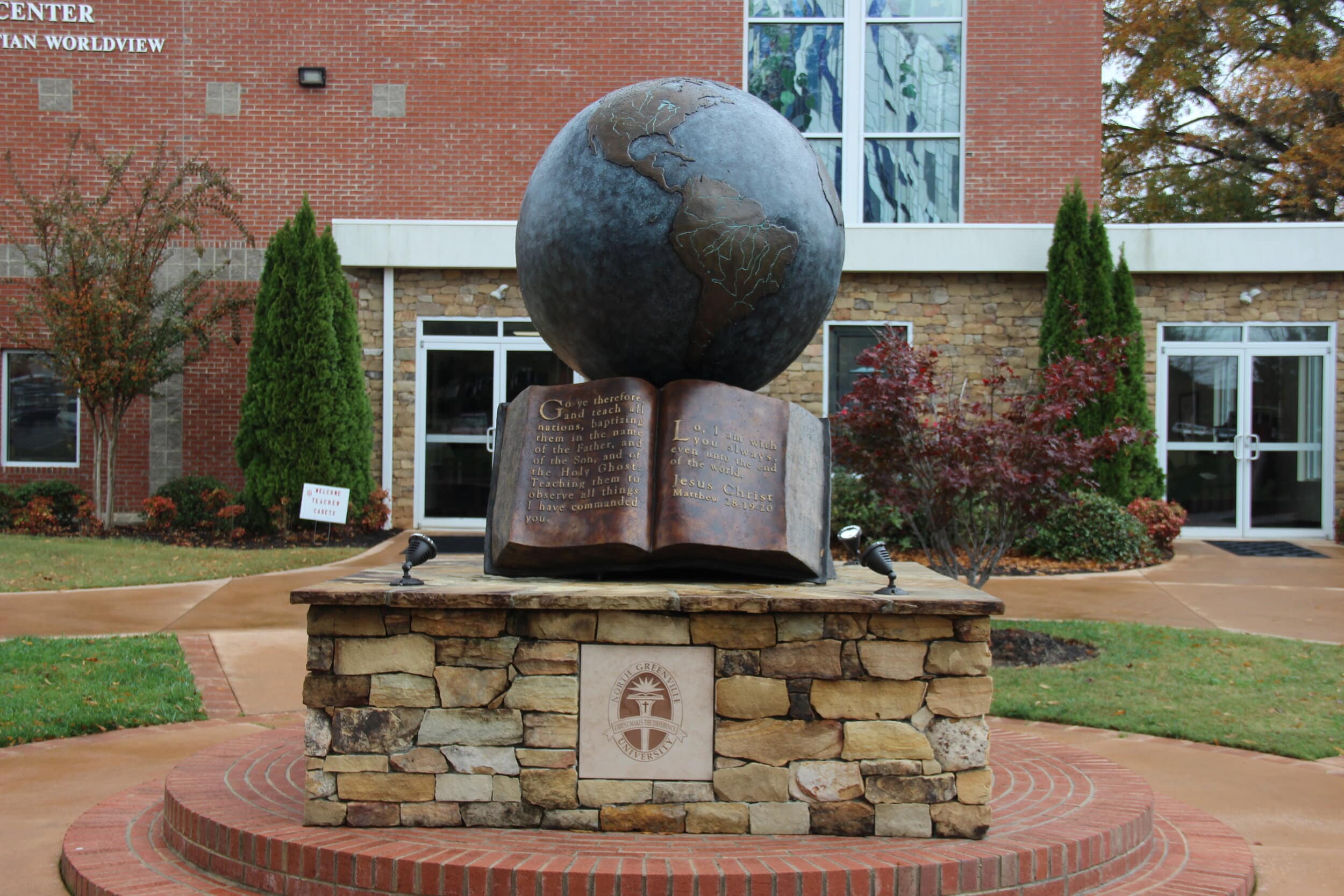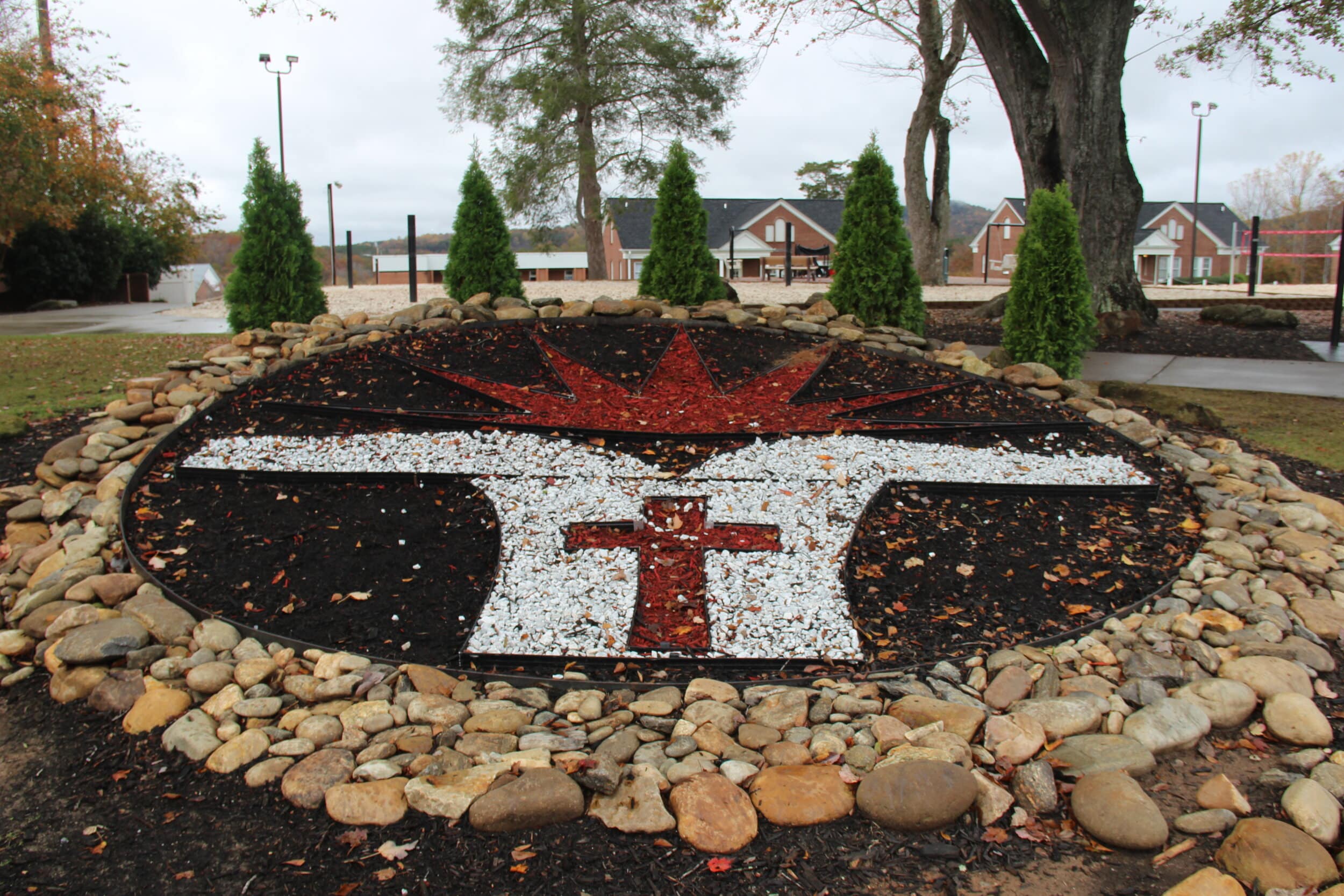
COVID-19 and campus life: How NGU has navigated the pandemic
Trey Stewart, Sports Editor
While February began to fade, students were scrambling as midterm exams loomed large over North Greenville University. Unbeknownst to those students, so threatened a once-in-a-century disease, a worldwide pandemic more disastrous than anyone could have imagined.
Newspapers and broadcast television pundits spoke about some sort of virus — COVID-19 was the name attached to it — but most Crusaders were taking little heed. After all, the virus had originated in China and was hardly making a dent in North America’s framework at the time.
What were the odds that this so-called “coronavirus” would make itself at home inside of a quaint city in the mountains like Tigerville, S.C.?
But for Rich Grimm, executive vice president of North Greenville University, and his COVID-19 response team, appropriate plans for the school were already being put in place.
“The [COVID-19 response] team started meeting back at the end of February,” said Grimm. “The team is comprised of senior leadership and front line staff from all over both campuses.”
As the virus began its rapid invasion of the United States, Grimm and his team knew it was the right call to move that semester’s remaining classes online. And on March 16, that’s just what they did, sending out a school-wide email via NGUOfficial alerting students of the adjustment.
The university’s hand was also forced into canceling Spring Commencement and all on-campus activities for the rest of the semester. But North Greenville’s COVID-19 response team made sure to turn their attention toward the impending task at hand: opening campus back up in the fall.
“It was never a question of whether we would open,” explained Grimm. “It was how we would open. And we felt like the best way for us to do so was to modify our operations, but to go ahead and resume on ground.”
“The machine” — Grimm’s way of referring to NGU operations — finally came back to life on August 10. That was the day student leaders returned to campus, and the North Greenville community felt a tinge of normality for the first time after nearly six months of quarantine and separation.
But as students came back, many doubted the likelihood of remaining on campus for the entire semester. COVID-19 was still ravaging the country, and college life wasn’t exactly going to be a comfortable atmosphere to promote the message of slowing the virus’ spread. Most students assumed that getting sent home and moving back to online classes at some point in the semester was inevitable.
“Honestly, I hoped that we wouldn’t go back online or even have to cut the school year short,” said Klay Jacks, junior at NGU. “But I did have a sinking feeling that the school would send us home. I think the media and social media are influencing a lot of fear in students, and for a little bit, it got to me. Overall, I do believe NGU is doing everything they can to keep us safe.”
So far, Jacks’ assumptions couldn’t be more accurate. COVID-19 protocols at NGU have proved effective, limiting the number of campus cases to well below the national average.
“There are almost three thousand people associated with North Greenville,” explained Grimm. “When you look at both campuses [Tigerville and Greer], our students, faculty, staff and everybody included, we’ve never had more than 2% of our community sick at one point in time. And it’s usually closer to 1%.”
A significant factor in making NGU’s control of the virus a success? The process behind how positive cases on campus are handled once confirmed.
NGU Executive Vice President Rich Grimm was named chair of the COVID-19 response team back in February, and has been instrumental in keeping cases on campus to a minimum.
Grimm detailed the comprehensive plan of action students are required to undertake should they test positive for COVID-19.
“As soon as that [positive test] comes in, we have contact tracers trained to reach out. They ask a series of questions about their level of infection, to whom they were exposed because we want to trace that way and then who they may have exposed.”
Residents who test positive can either go back home and stay there or remain on campus in a remote housing unit. Grimm reiterates that there is enough isolated living on campus to accommodate up to 60 positive cases at any specific time, a number the school hasn’t neared yet.
The resident students who decide to remain on campus after testing positive are kept in those isolation units for 10 days. That 10-day incubation period typically allows for potential transmission of the virus to be rendered obsolete.
“When you’re in [the incubation period], you’re not supposed to have any contact outside of your room,” Grimm elaborated. “Faculty members are notified of your positive test; the care team keeps up; our campus nurse will check in. And at the end of those 10 days, the notification goes out to the faculty and the student, and the student moves back into regular housing and starts resuming class.”
Though numbers for the university remain low, many students have one question on their minds: when will campus life begin returning to normal?
At what point will students be able to do away with masks and see each other’s faces again, and when will the time come for them to create their own distance from unpleasant memories of social distancing?
Grimm isn’t entirely confident of what comes next, but he hopes to assure those students that NGU is taking things just as they come, one day at a time.
“If the cases subside, and we feel like we can lift some restrictions, then we will,” said Grimm. “We have a pretty middle-of-the-road kind of response. Some people just want to meet in the courtyard, take their masks off and hug it out and get back to work. Others still want to be home in their pajamas the entire time. So we’re kind of in-between.”
North Greenville remains optimistic about the potential for relaxed restrictions heading into the spring semester, but Grimm is cautious about making any promises.
Although the numbers are stagnant for the time being, a sudden uptick in positive cases could flip the situation on its head. Controlling the spread of COVID-19 is still of dire importance, no matter the inconveniences that may arise.
“There are days you think we’ll be done with all of this after this semester, and we can open up normal,” said Grimm. “And then there are other days where you think to yourself, in some form or fashion, this could be the reality for the rest of the academic year.”
Despite Grimm’s hesitancy, the executive vice president says NGU will soon seek to release a tentative schedule for the spring semester.
NGU hopes to soon announce operations under a normal spring semester schedule.
“We hope to have a normal [spring semester],” said Grimm. “We will be making some announcements about those plans before long. Some people are already talking about the possibility of canceling spring break, but I think what we’re planning to announce is that we will have our regularly scheduled break.
“But if we have to change our plans because of what’s happening in front of us, we reserve the right to do that.”



